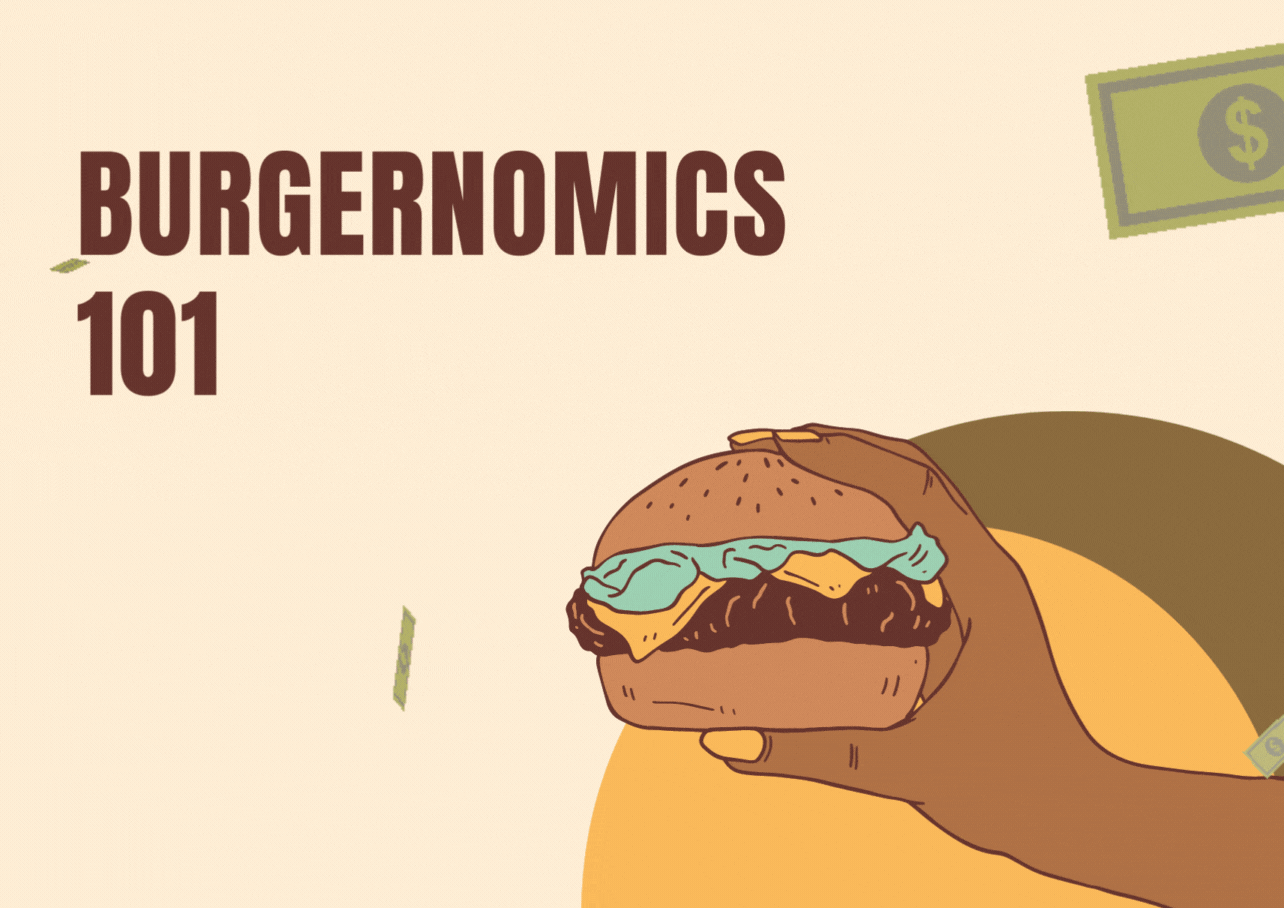Burgernomics: How can a burger determine the value of a currency?

Welcome to Burgernomics 101! We’ve got something to hook you on to, a list of burgers worldwide.
So, what can burgers possibly tell us about the economy?
- First off, they tell us how much currency is being printed via the amount spent on buying food.
- Second, they indicate whether or not currency is being used as a store of value (i.e., as a way to save money).
The global presence of McDonald’s is probably why the Big Mac was the chosen burger to be considered an economic indicator for many countries. Our Maharaja Mac is the answer to the West’s Big Mac.
The Big Mac Index is an interactive comparison tool built by The Economist in 1986. This was devised to act as a guide to check whether currencies are at their “correct” level. Or simply put, a tool to measure the exchange rates of currencies.
“One Big Mac, oops, Maharaja Mac for me!”

But how can a Maharaja Mac tell us about India’s purchasing power?
- Following the theory of Purchasing Power Parity or the PPP, the exchange rates are determined by the value of goods that currencies can buy.
- Analysing the differences in local prices of Big Mac around the world. The prices vary according to the PPP, currency and demand.
- This is where the Big Mac Index comes into play. We use Burgernomics to calculate which currency is undervalued or overvalued.
Burgernomics is used to determine which currency is undervalued or overvalued.
Taking a deeper dive
To understand the progression further, let’s round up the Big Macs around the world.
India ranks among one of the lowest-priced countries. While the Big Mac Index for India does differ from the classic exemplar (we have the Maharaja Mac instead of the Big Mac), it doesn’t make too much of a difference.
But hey, we’re comparing multiple countries here.
Another interesting trend that we notice is that the cheaper a Big Mac is in a particular country, the more time has to be spent by an average citizen to be able to afford a Big Mac.
For example, while an average citizen of Switzerland has to work 20 minutes to buy a Big Mac, an average Indian will have to work 404 minutes (~7 hours) to be able to afford the same.
Evidently, the above two infographics help us understand how the purchasing power of different countries is staggeringly different. Thus, the purchasing power of a country is determined here by how expensive the burger is and yet, how long it takes for an average citizen to buy it.
So, what does this mean for India?
While we would all like the Indian Rupee to be in the same range as the USD, we all know how that disappoints us daily. This analogy tells us that India was among the lowest on the list. As per the latest index, Rupee saw a rise of +0.029 (+0.04%), at Rs. 79.917 per $1. The Swiss franc is the most overvalued in the world while Indian Rupee is one of the most undervalued.
Looks like you just got yourself a fun fact to throw at your friends at the next burger party!
Markets this week:
|
|
|
|
Who manages smallcases?
Curious about the people who build and manage your investments? Here’s a glance at who smallcase managers are and what goes behind building smallcases.
This week we’ve been…
Reading about the bizarre indicators around the world: Apart from the Big Mac index, they are some bizarre indicators which exist in the world. From Alligator Population Index to Baby Diaper Rash Indicator, this article’s got it all. Our mind is completely blown, truly, anything is possible in the world.
Watching The Anatomy of a Scandal, based on a book now a limited series on Netflix. Filled with suspense and courtroom drama, this series is provocative and raises questions about modern-day societal judgements imposed on women.
That’s all we have for you today. Until next week, stay hydrated and invested.





























































